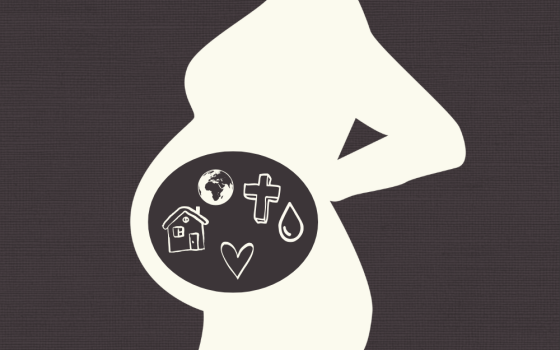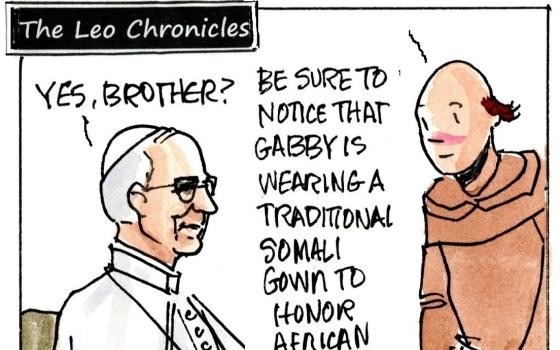
(Unsplash/Sharon Christina Rørvik)
India is a land filled with diverse cultures and languages that contribute to its richness. However, beneath this beauty lies a contradiction: The girl child, honored as a symbol of love and strength, is too often viewed as a burden.
While India worships women as deities, it struggles to celebrate the birth of girls. According to UNICEF, India has 253 million girls and adolescents. Despite this, the sex ratio at birth was 929 girls for every 1,000 boys in 2019-2021, according to the National Family Health Survey. In many rural areas, families still hesitate to welcome a girl child for reasons such as social customs, male-dominated attitudes and the preference for a male child.
Why are girls unwelcome?
The reasons are deeply rooted in cultural, social and structural inequalities. Fa.milies worry about dowry expenses, child marriage and threats to women's safety. Many children suffer abuse from relatives in their homes, making it a serious issue. In 2022, India reported 162,000 cases of child abuse, an 8.7% increase from the previous year, according to the National Crime Records Bureau.
A Tamil proverb says, "Having girls at home is like carrying embers in stomach." Caste adds another layer of difficulty. Women's bodies are linked to family honor, and inter-caste relationships often lead to violence, even "honor killings." Girls are seen as bearers of shame instead of pride, acceptance and assets.
Despite progress, social and cultural biases against women and girl children remain. Despite achieving great success, women often face disappointment, hesitation or reluctance when considering giving birth to girls.
Laws and resistance
The Female Infanticide Prevention Act of 1870 was an early effort by the British colonial government to stop the killing of girls. Later, areas such as Usilampatti in Tamil Nadu, South India, gained notoriety for female infanticide, considering girls as curses and boys as lineage-bearers.
While such practices have decreased, sex-selective abortions continued until the Pre-Conception and Pre-Natal Diagnostic Techniques Act of 1994 banned determining a fetus' gender. Today, sex selection is illegal, and penalties include imprisonment and fines.
Still, stigma endures. I was welcomed as my family's firstborn daughter, but when my younger sister was born, villagers whispered that our family was cursed for not having a son. This mindset still affects countless families.
The role of the church
In this context, the Catholic Church in India observes Sept. 8, the feast of the Nativity of the Blessed Virgin Mary, as Girl Child Day. This observance affirms the dignity of every girl. The church works to challenge cultural beliefs that support inequality, to raise awareness about gender justice and promote equal representation for girls in homes, schools, churches and society.
Advertisement
As a woman and a member of the religious community, I feel both proud and challenged by my identity. Growing up in a traditional village meant constant limitations: I had to watch what I ate, wore and said. I was instructed not to laugh out loud, not to walk alone, and not to express my opinions in family decisions. My family and society at large imposed numerous restrictions and limitations on me, both tacitly and explicitly. I was not an exception; like me, many girls and women have their share of limitations imposed upon them.
The situation is even more difficult for girls from marginalized communities who lack many opportunities for education and employment, and cannot assert their agency and dignity, which are their inalienable rights.
I recall a 12-year-old girl who confided in me about her dream of becoming a religious. Yet her mother dismissed her dream, saying that as a washerwoman's daughter, she could never be anything else. How do we, as a society, respond to such a child's innocent dream that never saw the light of day?
Mother Mary presents an alternative vision. When the archangel Gabriel shared God's plan, her brave "yes" shaped the course of salvation history (Luke 1:26-38). Her example of decision–making encourages today's girls and women to embrace agency, leadership and dignity.
Our call
On this Girl Child Day, let us pray and commit to protecting the dignity of every girl. Let's create a society where girls are not viewed as burdens but as blessings. Every child, regardless of gender or caste should be able to live freely, safely and with hope. Girls must have the chance to grow with agency and opportunities that strengthen their dignity and capabilities.
Such a progressive and safe environment paves the way for all girl children and women to contribute to the sustainable development we aspire to. As the saying goes, no society can grow without women. That means girls and women cannot be left behind.








